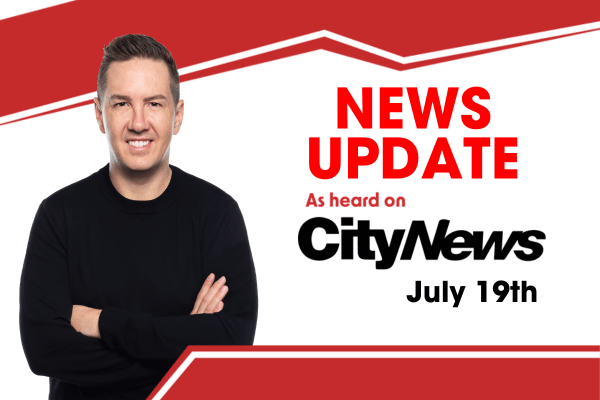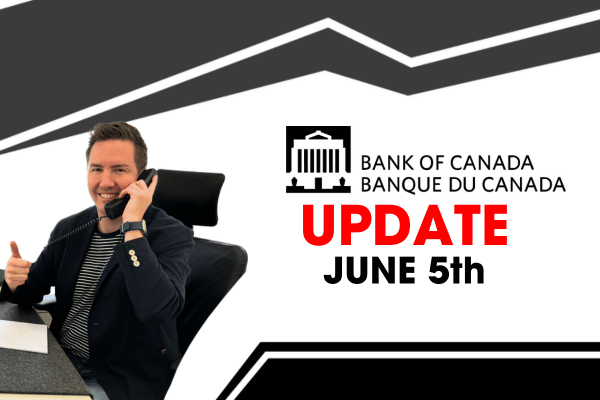Clinton joins Todd Veinotte for this special news update on a Toronto news announcement about a potential big drop in prices in the coming months. Clinton gives his take on what that means for Nova Scotians, and gives refinance advice.
CTV Morning Live: Financial Literacy Month – November 25, 2019
Clinton Wilkins sits down with Ana Almeida from CTV Morning Live to answer viewers’ questions and to talk about Financial Literacy Month.
Don’t feel like watching the video? Check out the mortgage application advice video transcript below.
Transcript:
Mortgage application advice
Ana Almeida: [00:00:00] Did you know that more than half of Canadians continue to live paycheck to paycheck? November is financial literacy month. For many, that means getting control of their debts. This year’s theme is taking charge of your finances. Clinton Wilkins is back on the CML couch this morning, There he is! To answer some of your financial questions.
Clinton Wilkins: [00:00:15] Thanks for having me!
Ana Almeida: [00:00:15] Thank goodness you’re here. OK, let’s talk about financial literacy. Why is it such an important topic?
Talking about financial literacy
Clinton Wilkins: [00:00:22] Well, I think November is a great time to look at your finances, I think going into the holidays. You know, we’re all notorious at potentially overspending, but starting into a new year, I really think it’s important to take control of your finances and buy a home is the biggest purchase of your life and a mortgage is the biggest debt of your life. And I think just looking at your entire financial package in November and learning about what’s going on. And I think, you know, education is power, and I think November, just bringing it to the forefront is so important.
Ana Almeida: [00:00:48] I like that. Education is power, knowing. OK, so we actually asked our viewers to have questions prepared that we could ask you. So some of these questions are, should I consider financing my mortgage to help with a renovation?
Clinton Wilkins: [00:01:02] I think that’s a great point. A lot of times when people do the renovations, you know, sometimes they’ll have cash, but oftentimes they’ll take out a loan or put it on an unsecured line of credit, which is typically a higher interest debt. I like financing renovations with the mortgage because tying the debt onto the actual home, is definitely going to be at a lower rate, And it forces you to pay it down, which I think is important. Sometimes these unsecured lines of credit are a forever plan. You know, sometimes you only pay the interest or maybe 3 percent and it takes a very long time to pay off, especially at a higher rate because mortgage debt is the cheapest that you can have.
What about variable rates?
Ana Almeida: [00:01:37] Oh my goodness I never would have thought of that! Ok, so the next question is, if I look at it at a fixed-rate mortgage, am I stuck? And what about a variable rate?
Clinton Wilkins: [00:01:44] Well, historically, variable rates are lower than fixed because short term products are typically lower than the long term. But we’re in a very odd time right now and we’re in an inverted position where the long term products are actually cheaper than variable. Now, a fixed rate isn’t for everyone.
Because if you are going to break your term early, you could pay a much larger penalty, and a lot of things change in people’s lives. I can tell you about 60 percent of our clients are in a variable and about 40 percent are fixed. And you really have to ask your questions, will I lose sleep at night if I’m in a variable? Because you may see your payment change. But on the flip side of it, a variable is that we’re gonna provide you the maximum amount of flexibility. So I think it’s just everybody’s case is individual, and I think, you know, seeking the advice of an unbiased mortgage professional is so important, especially when it comes to the rate.
Ana Almeida: [00:02:31] My gosh, And this next question, I feel like many can relate. How do I know when I’m carrying too much debt? What are the signs?
When do I have too much debt?
Clinton Wilkins: [00:02:37] I get asked this question all the time. So I think one of the huge signs are if your debt is growing month over month, then I think you know that you have a problem. I think it’s also important, and maybe November is a good time, Write down your debt. Figure out how much you owe and then write it maybe in your calendar and look back the following November. If the debt hasn’t gone down yet, then maybe you need to look at seeing what you can change to impact it for the following year.
Ana Almeida: [00:03:05] I like that.
Clinton Wilkins: [00:03:05] I love having a fresh start at the beginning of the year.
Ana Almeida: [00:03:07] January you can start planning after the holidays and get all those bills coming in now. OK, so the next question we have here is what financial habit will help me improve my financial well-being?
Clinton Wilkins: [00:03:18] Well, I think that it really is about opening up your bills. And a lot of households are made up of a couple. And I think once a month having, you know, a finance meeting or a budget meeting definitely has a value. You know, if you’re a wine drinker, maybe opening a bottle of wine and talking about your bills, you know, financial literacy is one of the last taboos. No one wants to talk about their income assets and write it. And I think just breaking down those barriers really is important.
Ana Almeida: [00:03:42] And talk to the person that you share the mortgage with, potentially, it doesn’t have to be just on one person’s shoulders. Right. And my last question here is having no debt and no savings better than having both debt and saving?
Debt and savings
Clinton Wilkins: [00:03:54] Well, I think they balance each other out. But why would you have savings when you’re paying interest on the debt? I think paying down your debt first is so, so important. And then savings. And people want to do a two-tiered approach. But as I say, why bother having savings if you’re gonna pay interest on money when you could pay it off?
Ana Almeida: [00:04:10] Ok. I think I wrote that one.
Clinton Wilkins: [00:04:12] That might be a good one for everyone!
Ana Almeida: [00:04:16] All right. Well, thank you so much, Clinton, for coming in, You were such a great wealth of knowledge for us.
Clinton Wilkins: [00:04:20] And we’ll see you in the new year.
Ana Almeida: [00:04:21] You got it. I’ll have my dream board ready to go with all the financial things I have to pay off. OK. There is more CTV morning live coming up!
Looking for more information or other mortgage application advice? Feel free to contact us!


